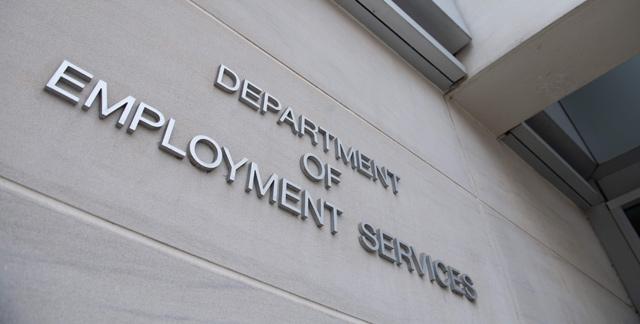- Mix
- Thu-2021-02-04 | 05:00 pm

Nayrouz News Agency :
Stock markets were mixed on Wednesday as investors juggled developments concerning US stimulus, while oil prices pushed higher into pre-pandemic range.
Equities had started the week strong, rebounding from losses last week as investors began to get cold feet about the narrative that the world economy will bounce back strongly this year thanks to vaccines as vaccination campaigns struggle and new COVID-19 variants emerge.
But the rally faded on Wednesday despite data showing that US private sector jobs rose last month and growth in the service sector accelerated in January.
Chris Beauchamp, chief market Analyst at online trading firm IG, called it a case of good news being bad news.
He said some consider the data "will strengthen the hands of the fiscal hawks on Capitol Hill and give them more firepower in their attempts to water down any Biden stimulus package".
In the US, the Senate on Tuesday took a tentative step towards approving a massive economic aid package proposed by President Joe Biden, although it remains unclear if he will be able to get his $1.9 trillion plan passed without concessions.
Oil prices pushed ever higher after hitting pre-pandemic levels on Tuesday thanks to data that showed a drop in US inventories.
"Crude's fundamentals continue to support higher prices," said analyst Edward Moya at currency trading platform Oanda.
He said that for oil prices to rise, stockpiles in the US and China need to continue to fall and that, so far, they have been.
Moya expressed confidence that "the crude demand outlook will improve dramatically in the second quarter”.
Recent data has showed infections and deaths in the United States — the worst-hit country — appear to be easing.
Experts said this was the result of more people wearing masks and social distancing, along with the end of the holiday season.
Vaccination programmes in the United States and Britain were picking up pace, although the European Union was struggling to get up to speed owing to supply problems.
The University of Oxford on Wednesday said the vaccine it produced with AstraZeneca significantly reduces virus transmission and is highly protective after a single dose.
British pharmaceutical group GlaxoSmithKline and German biotech firm CureVac meanwhile announced plans to jointly develop a coronavirus vaccine with the potential to counter multivariants of COVID-19.
Meanwhile, news that former European Central Bank chief Mario Draghi might become Italy's next prime minister gave stocks a fillip in Milan.
Draghi is credited with saving the eurozone in 2012 at the height of the debt crisis.
In Asian trading, the Hong Kong and Shanghai markets were hit as China's central bank sucked more cash out of financial markets to avert a bubble
-
 Will Trump end up like Kennedy?2026-02-03
Will Trump end up like Kennedy?2026-02-03








